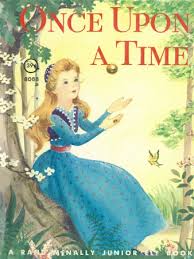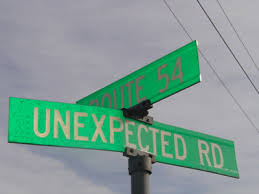by j9robinson | Oct 27, 2012

College Admissions Essays: Five Tips for the Perfect Topic
Still looking for a college application essay topic
that will set you apart from the pack?
Here are my Top Five Tips on finding compelling and memorable topics:
1. Start with a defining quality (curious, self-disciplined, creative), and then look for “times” or examples of when you either demonstrated this quality, had this quality challenged or developed this quality.
Click HERE to find my Jumpstart Guide to help you with that approach.
Don’t know your defining qualities? Click HERE to find them.
2. Try to find something “unexpected” to write about, either something that happened to you that no one would expect to happen to someone like you (you love knot-tying but got stuck in a tree because you used the wrong knot); or something you love or pursue that no one would ever expect of you (a football player who loves to bake cakes.); or some personal trait or characteristic that no one would guess has affected you (you are not even 5-feet-tall but wear a size 9 shoe.)
Click HERE and HERE to read more about that.
3. Troll your past for “mundane” or everyday topics as opposed to ones you think might be impressive. Examples: The Day I Washed Dishes at My Dad’s Restaurant; People Think I’m Mean Because I Weigh 300 Pounds; How I Grew to Love Public Busses; I’m a Formal Guy Even Though I Live in Surf City.
Click HERE for more posts on the power of mundane topics.
4. Read sample essays. If you are stuck, it’s so worth the little bit of time to get your hands on a cheap collection and skim through them. First, you will see the range of topics that other students have used, and chances are it will trigger your own ideas.
Secondly, you will get a feel for the looser, narrative style and structure of these essays, which will help you write yours. Click HERE for books of sample essays. And HERE is a post with online sample essays.
5. Go down memory lane and try to remember “times” when you faced a problem. If you can find a problem, you will find a story. (Problems come in many different shapes and sizes: challenges, change, mistakes, obstacles, phobias, fears, bad luck, physical traits, etc.)
If you have a little story (also called an anecdote), chances are you can write an engaging essay. Click HERE to learn more about how this works.
Are you a visual learner? You might find How to Answer Common Application Prompt 4, a free video tutorial, a huge help!
by j9robinson | Dec 28, 2011

So you have a rough draft for one of your college essays.
You answered the prompt, read it many times and believe it’s a solid piece of writing.
And you may be right.
But even a solid essay can have one fatal flaw–-it’s boring.
The last thing you want is for the admissions person to toss your well-written essay in the “read later” pile. Here are a couple tips on how to bump it up:
1: Your introduction is the most important part of the essay, since it will either grab the reader or not.
Often, writers start by providing background on their topic and then get to the good stuff. Try to take out the first sentence, or two, and see if you can start farther into your story.
You might have to rewrite it a bit, but often you just don’t need that general background right at the beginning.
It’s best to switch it up and get right to your best example or point, and then provide the background later. If you can start with your most interesting examples or points, you will grab your reader all the faster, and that’s exactly what you want.
EXAMPLE: “When I was in high school, I played the violin in the school band. It was my favorite activity and I never missed a practice or performance. But one day, to my horror, I left my thousand-dollar violin on the school bus…”
You are building up to something exciting here. Try to start right at the heart of the action, the moment you left the violin and your reaction: “As I stepped off the bus, I had the vague feeling I was missing something.
But I was late for my orthodontist appointment, and ran to meet my friends. It was only later that night that it hit me: I left my thousand-dollar violin under the seat.” (And then you can go on to background your history playing the violin, etc.)
(more…)
by j9robinson | Jun 9, 2010

College Application Essays
How to Tell a Story
In journalism, writers often use “anecdotal leads,” that is, starting a news or feature story with a mini-story about a real-life event, one that puts the reader in the middle of the action.
Usually, the anecdote only describes a single moment or incident.
But it’s usually a highlight.
Something happened.
Anecdotes make great introductions for college essays. (I believe there’s no better way to “grab” your reader than to start a story–or your essay–at the most exciting part!) So how do you write an anecdote? Here are some tips.
- Start at the peak of the drama or excitement or conflict. Jump right in! (You will just back up and explain it later.)
- Set the scene: Describe what you see, what you hear, what you feel (both literally and figuratively), what you smell and taste, if relevant. These are called sensory details.
- Use the 5 Ws—Who was involved? What happened. Where did it happen? When did it happen? Why did it happen? ( “H”: How did it happen?)
- Paint a picture with your words, or even better, describe a snippet of video. Zoom in on the action.
- Usually the “action” in your anecdote takes place in a matter of a few minutes.
- Throw in a line or two of dialogue to add drama or move the action forward.
- Use “concrete details.” Be specific! Instead of saying, “The dog ran up to me.” Say, “the neighbor’s bull terrier, Brutus, charged me…”
- In general, use short sentences or mix up the short and long.
- Don’t worry about the background or explaining the larger context of the moment. You can back up and explain that in the next paragraph.
- Borrow techniques you find in fiction writing: concrete details, dialogue, proper nouns, descriptive language, emotion, strong characters, etc.
- Use simple language (avoid SAT vocab. words). Write with nouns and action verbs. Go easy on the adjectives.
- If your mini-story (anecdote) takes three paragraphs to relate, try to go back and see if you can cut it down to two or even one paragraph by keeping only what you need to re-create the moment. You will be surprised how you can shorten them, and actually make them better!
“Writing is easy. All you have to do is cut out all the wrong words.” Mark Twain
Here is another post about how to write anecdotes that you will find very helpful, too!
Check out my new video tutorial on How to Write an Anecdote: Part One!
by j9robinson | May 19, 2010

I just went back over college essays my clients wrote over the last several years.
Despite the classic list of what not to write about (see previous post), I would say many wrote about mission trips, volunteering activities and sporting experiences anyway.
Some pulled it off, however, because they focused in on specific incidents and what they learned from those.
Others, however, were pretty flat.
My favorite essays, I noticed, almost always involved something unexpected, whether it was something that happened to the writer or how they reacted and learned from it.
They also included anecdotal leads. For example, here are two topics that resulted in strong essays:
1. One student wrote about how things always went his way, and how he was always top of his class, the star athlete and picked for leading roles in the drama program.
His essay told the story of how he expected to get the star role in his senior play, and was stunned to learn he got a lesser role. (this was the “unexpected”)
In his essay, he developed what he learned from that experience.
In a natural way he was able to highlight his talents, yet come across as humble and likable at the same time.
(He also started his essay with a simple anecdote of the moment a friend shouted out to him that he did not make the lead role. This short, narrative introduction included dialogue and captured with high emotion his huge disappointment. A perfect “grabber” intro!)
2. Another student wrote about how she injured her ankle playing soccer on the varsity team, and was out for the entire season, yet learned more sitting on the bench that season than she would have playing. (also, the “unexpected”)
Her essay focused on how she discovered a new perspective on her team and the game by simply watching.
Again, she showcased her talents, but showed how she was able to turn something negative into a positive.
(she also started her essay with a short narrative anecdote—with strong imagery on the setting, dialogue, etc—focusing on the moment she was injured, which added emotion and drama to his essay.)
What these effective essays had in common:
- They both included something unexpected and how the writer learned something from the experience.
- They both focused on one incident and expanded that into larger lessons learned.
- They both pulled the most intense moment to describe in their introductions, which made their essays full of lively writing (vivid details, descriptive language, colorful dialogue, etc.) highly readable.
What is unexpected about you?

by j9robinson | Feb 4, 2010
 I began this blog when my daughter was a junior in high school and starting her college application process. Like a lot of parents and applicants, I thought she needed some amazing experience in order to write a fabulous essay. The good news is that I was wrong! In fact, I have learned, and now preach, that the most mundane topics actually produce the strongest, most compelling essays.
I began this blog when my daughter was a junior in high school and starting her college application process. Like a lot of parents and applicants, I thought she needed some amazing experience in order to write a fabulous essay. The good news is that I was wrong! In fact, I have learned, and now preach, that the most mundane topics actually produce the strongest, most compelling essays.
Now, my son is a junior in high school. So here we go again. If it’s helpful, I will share how I’m going to try to help him with his college admissions essays. It’s never too early to start these, but the reality is most kids don’t get cranking on them until the summer before their senior year, and many wait until later than that. (As with all writing, deadlines can be the best motivators.) My advice to parents and students is to just start thinking and brainstorming about possible topics now, and jot down general areas of interest and experiences that you want to mine. I will do this for my own son and share the process with you in the next post. (You might find it helpful to scroll down my blog and read the entries regarding topics, so you have a better idea of what we are trolling for.)
Remember, don’t work yourself up into a tizzy over these. Everyone has interesting stories to tell. Do your best to keep the pressure and anxiety level low. These aren’t that difficult. They do get done. And most are really good!
by j9robinson | Aug 25, 2008

Some college counselors advise students to think of their life as a book and write down some chapter titles. Then pick one you like and expand upon it. This naturally directs the essay into a narrative (story-telling) delivery.
I thought of a few from my own background as examples:

“Chasing grizzlies in Wyoming”
“Playing cribbage with my new blind friend”
“Burning crepes at the Magic Pan”
“Working the graveyard shift at White Castle”
“How I became student body president–by accident”
“The day I spent in the New York bus station”
See what you come up with. You might be surprised that you have a bestseller! Click HERE for other posts to help you find the magic topic!















